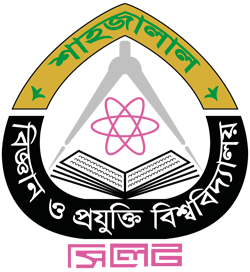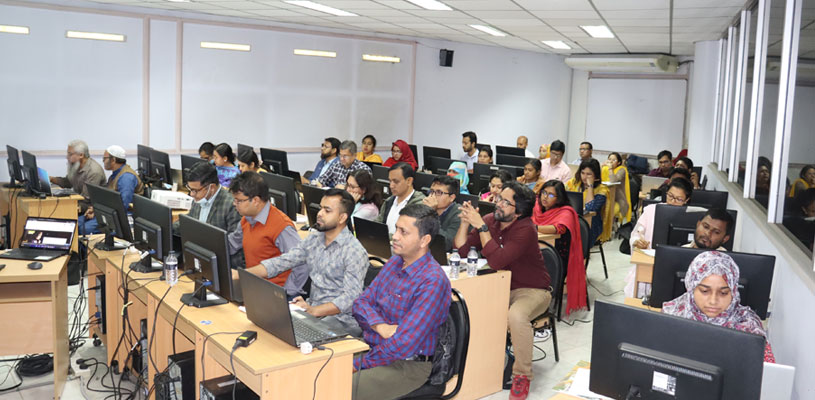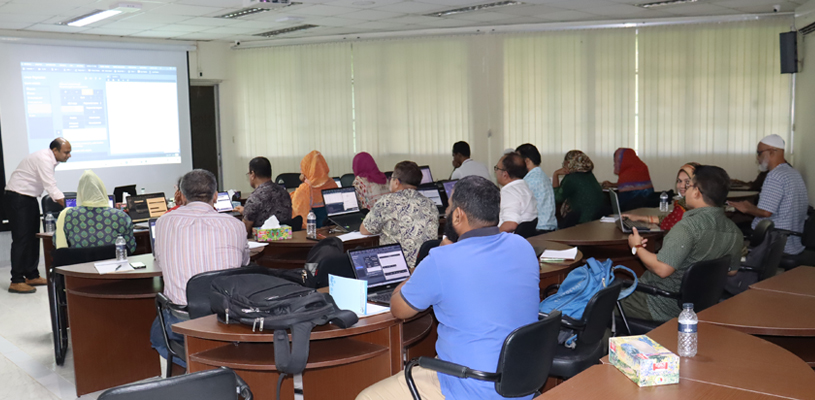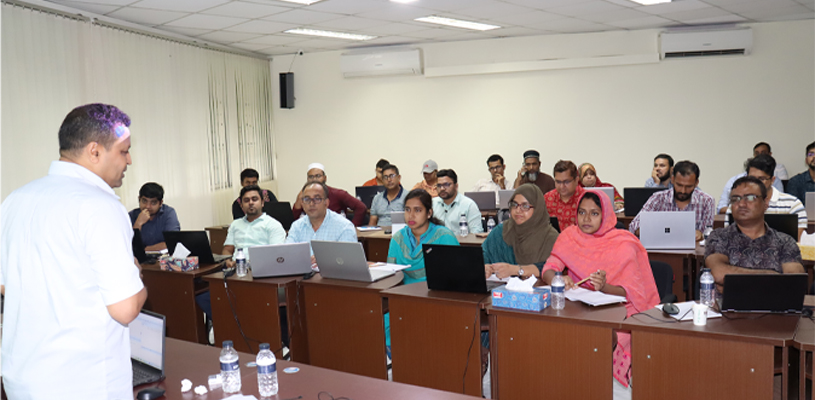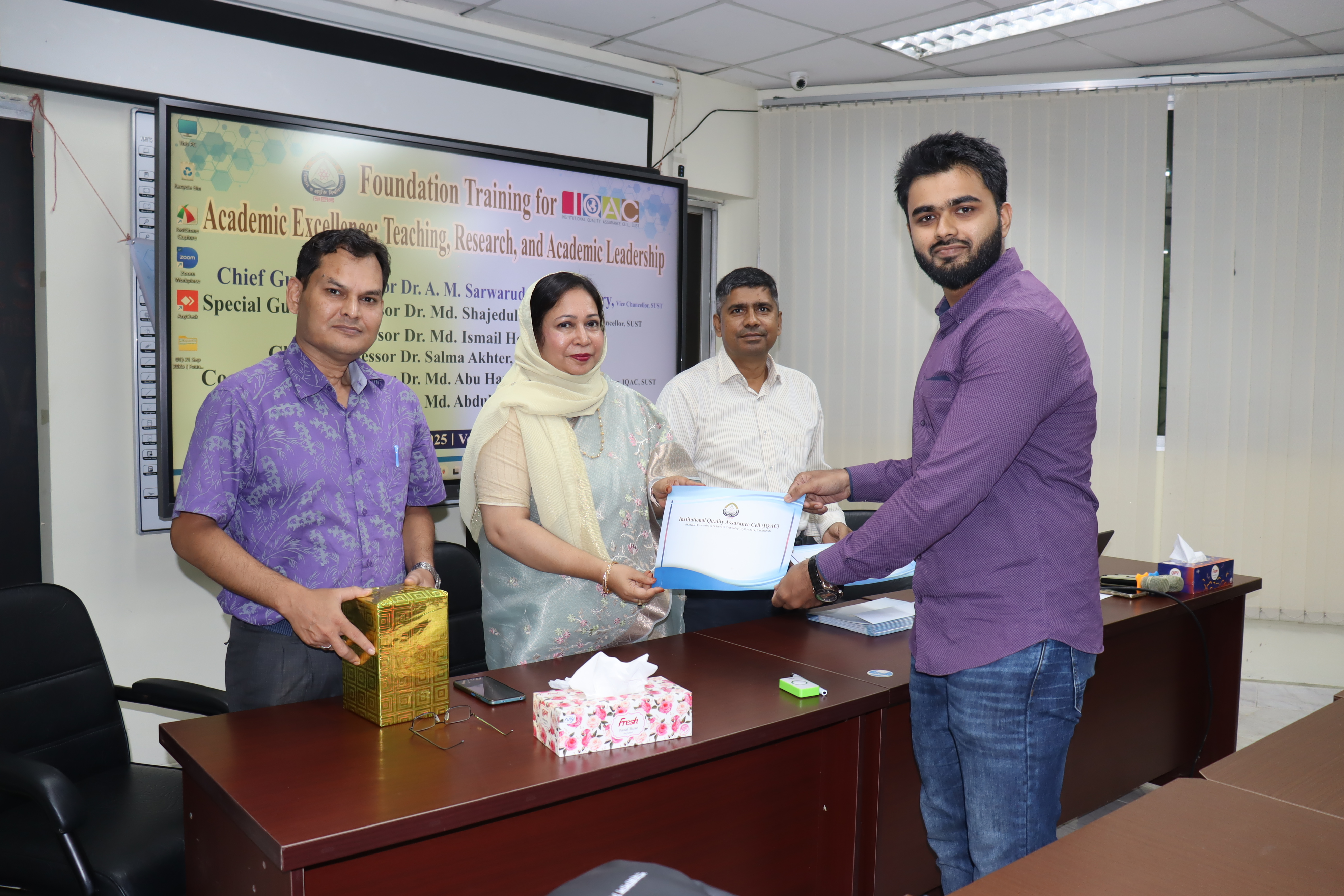- Home
- About Us
- Academics
-
Offices
- Office of the Vice Chancellor
- Office of the Pro Vice Chancellor
- Office of the Treasurer
- Office of the Registrar
- Office of The Dean, School of Agriculture and Mineral sciences
- Office of The Dean, School of Applied Sciences and Technology
- Office of The Dean, School of Life Sciences
- Office of The Dean, School of Management & Business Administration
- Office of the Dean, School of Physical Sciences
- Office of the Dean, School of Social Sciences
- Others
- Research
- Admission
- Campus Life
- Notice Board
- SUCSU
Shahjalal University of Science and Technology
Overview
Welcome to Institutional Quality Assurance Cell (IQAC)
The present government, headed by the Hon’ble Prime Minister Sheikh Hasina, is committed to changing the landscape of higher education through the enhancement of the quality of higher education and research in the country. To achieve the target of quality education, the pGoB and the World Bank have generously funded the project, which is known as Higher Education Quality Enhancement Project (HEQEP). The project is implemented by the University Grants Commission with the help of the project officials and that of the World Bank.
The establishment of the Quality Assurance Mechanism is one of the major components of HEQEP, and for that, establishing the Institutional Quality Assurance Cell (IQAC) in each of the universities has already been in place to create an enabling framework to provide improved quality of tertiary education. In this context, as an ‘A category’ university Shahjalal University of Science and Technology (SUST) has been selected to establish IQAC from the first phase, and IQAC-SUST is functioning from 1st January 2015.
The main purpose of IQAC is to identify the gaps between the existing system and stakeholders' demands and to enhance and maintain the standards of quality of higher education up to international standards. At present, IQAC, SUST is working to assess all 27 (Twenty-Seven) departments and 01 (one) institute’s academic programs to find out the major strengths, opportunities, weaknesses, etc., to make proper and appropriate strategic improvement plans for those programs as well as of university. Besides the assessment activities, IQAC is organizing different training, seminars, and workshops to improve the quality and efficiency of academic and non-academic (administrative) personnel. For instance, so far, IQAC has organized the following programs:
- Seminar on self-assessment: Awareness, motivation, team building and process.
- Seminar and workshop on curriculum development, pedagogy, and metacognitive tools and techniques, report writing, and documentation ethical principles of faculty members.
- Workshop on good governance: office and financial management.
- Meeting with stakeholders: Sharing views and opinions with Alumni, employers, guardians, and students.
- Hands-on Training on Systematic Reviews and Meta-Analysis, Qualitative Data Analysis with NVivo, Statistical Computing with R Programming
IQAC is supposed to be engaged in the implementation of the strategic improvement plans that will come out from the activities of self-assessment and peer observation of all 27 departments and 01 institute. It will also work on the modification of different existing academic and administrative rules of SUST based on the recommendation of concerned stakeholders. The ultimate goal of IQAC is to enhance and maintain the quality of education at SUST and get accreditation of SUST, initially the academic programs and then the institution as a whole, nationally and internationally.
Our Vision
- Achieving Accreditation for all the Academic Programs as well as of SUST from world renowned accreditation bodies
Our Mission
- Developing quality systems for conscious, reliable, transparent, consistent academic and administrative performance of SUST.
- Benchmarking the practices and processes with the best universities in the world.
- Institutional quality enhancement through internalization of quality culture and institutionalization of best practices.
Our Objectives
- To facilitate the self-assessment of academic programs
- To improve quality of Course curricula of programs by establishing the objective based learning process and value-based education system
- To organize seminars, workshops, training programs on academic and quality assurance, research methodology, good governance, etc.
- To develop and maintain institutional data base and documentation
- To build networks with the stakeholders to get the feedback
- To develop quality assurance policy and to establish it at SUST
- To assure the quality practices in teaching-learning, research and support services for achieving the goals of SUST
